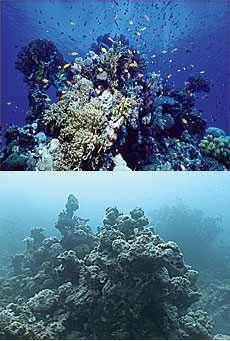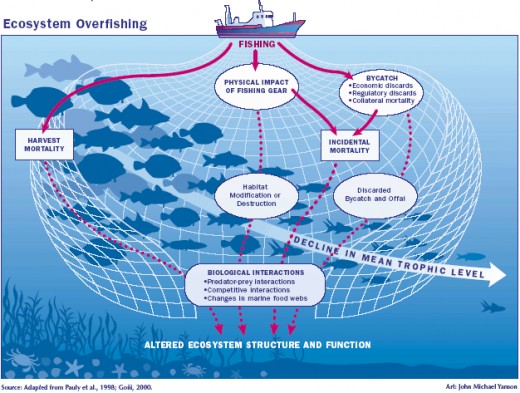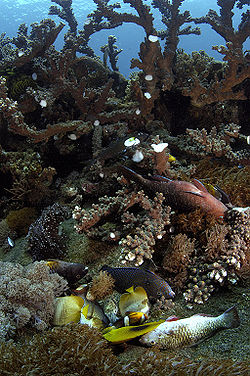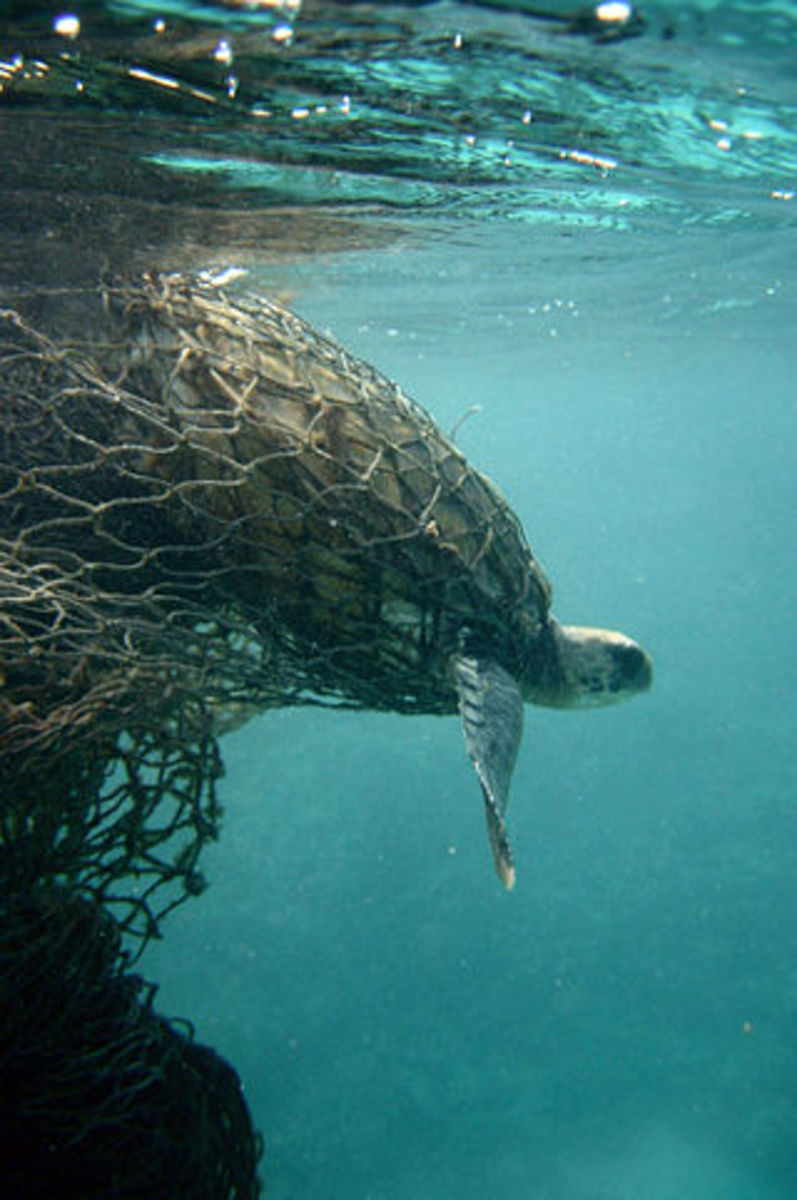Destruction Of Coral Reefs

Statistics
According to the United Nations 10% of the worlds coral reefs have died in the last 4 years alone and almost a quarter of them are seriously suffering. Scientists believe that if we continue treating them the way we are humans will be responsible for the irreversible death of coral reefs within the next 40 years.
Coral reefs are one of the largest living structures, and one of the most biologically diverse regions, on earth. Despite only covering 0.2% of the total area of oceans in the world, coral reefs are home to 25% of all marine species.

A bit about coral
Corals are invertebrate animals that live in compact colonies consisting of individual interconnected polyps. The individual coral secretes calcium carbonate to form a hard skeleton; these are called Scleractinia or ‘stony coral’ and much of the coral reefs framework is formed by them. As the polyps grow they divide to form coral colonies and these colonies then grow on top of each other to form coral reefs. Coral reefs are found in warm and shallow waters, generally around the equator, as these are the corals optimum living conditions.

Zooxanthellae, coral bleaching and coral reef structures
Coral has a symbiotic relationship with zooxanthellae, much like the relationship flowering plants have with pollinators such as bees, the two different organisms each benefit from living closely with one and other. Zooxanthellea are photosynthetic unicellular algae that live within the corals tissue and provide it with oxygen and sugars that then give them energy to extract calcium from the water to help them form their skeletons more rapidly and efficiently. In return the coral provides the zooxanthellea algae with carbon dioxide and waste products full of the nutrients that they need to live.
When corals are put under stress they expel their zooxanthellea from them, this causes ‘coral bleaching’ (it’s called this because it is the zooxanthellae that gives the coral its coloration and without it coral appears lighter or completely white.) If the stress the coral is under is not too severe then it can go back to having its symbiotic relationship with the algae, whereas if the stress continues and if the zooxanthellae does not recover, the coral host will eventually die too.


Threats to coral reefs
Humans are to blame for a lot of the stresses that the coral is put under; therefore they are to blame for a lot of the destruction of coral reefs. Of course there are some natural stresses that cause coral reef destruction such as hurricanes, earthquakes and plagues of coral-eating predators like the crown-of-thorns starfish and there is little we can do about these; however human caused stresses on coral reefs are ever increasing and persistent.
Over fishing and unsustainable fishing methods are among what I think are the most destructive thing humans do towards coral reefs. Blast or dynamite fishing is where fishermen use explosives to kill the fish in order to make collecting them easier. Over 50 reefs in the southeast of Asia have been victims to it and the illegal practice of blast fishing is used in over 30 countries. Not only does blast fishing completely shatter the coral reef and kill any marine life nearby but coral requires a stable, solid structure on which to rebuild itself and having constantly moving rubble from the shattered reef is not that. So not only does it cause immediate destruction but it removes any chance of coral colonies eventually rebuilding themselves.
Due to the ever increasing demand for fish, trawler fishing has become a hugely popular method of catching lots of fish relatively easily. Bottom trawling involves dragging big, heavy fishing gear over the sea bed and it causes large scale destruction such as coral shattering, which has the same effects that dynamite fishing has when it comes to the rebuilding of coral reefs.
Over-fertilization of the coastal zone and marine life by nutrients from sewage and run off from agriculture also kills marine life and coral. Coral is very fragile and relies on the correct balance of chemicals and such in the water, polluting the water with harmful substances can be deadly for the coral and has been associated with the apparent surge in coral diseases.
Coral bleaching is often a result of significant rises in sea temperatures, normally due to global warming. Activities such as burning fossil fuels and deforestation all contribute to the increase of greenhouse gases in the atmosphere that causes the increase in temperature and therefore the bleaching and destruction of coral colonies.

What we can do to help
-Reduce use of chemical fertilizers.
-Volunteer with organisations that help clean up local waters.
-Encourage political representatives to enlarge marine parks, strengthen national policies and programmes and ensure protection laws and bans are enforced.
-Encourage the creation of marine protected areas to help protect coral reefs and their bio-diversity.
-Buy fish that have been caught using sustainable fishing methods.
-Don’t pollute. Recycle and don’t litter.
-Spread the word!
Coral reefs are so helpful to us in a number of different ways; they provide us with a food source (more than 350 million people worldwide depend on coral reefs for food and survival.) They are also extremely vital source for medical resources, (they provide chemicals used in antihistamines, antibiotics and medications for other illnesses such as asthma, leukaemia and heart disease.) They also help the economy by being a popular tourist attraction and help protect against coastal erosion. Stop the exploitation and destruction of these beautiful coral reefs and help people realize that if we don’t do something to help, coral reefs will continue to die rapidly and be destroyed beyond the point of repair.
Thanks for reading. :)





